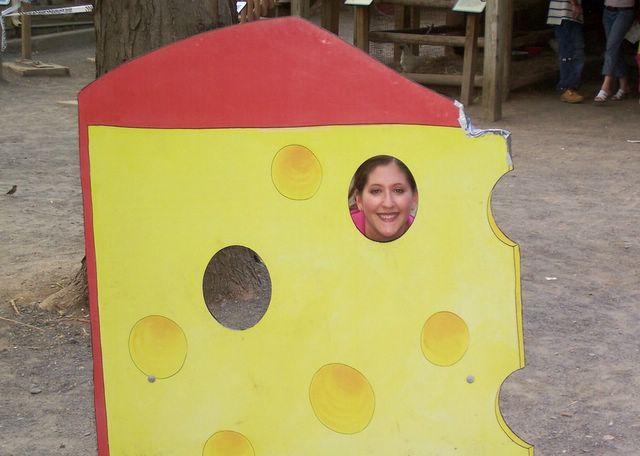My husband doesn't speak to his father. This has been going on for almost four years now, but the problems began more than a decade ago when his father got re-married. I have foolishly tried to help mend the gap on several occasions, only to end up being on the receiving end of a load of bullshit, for lack of a more eloquent term.
Part of my motivation to fix things is selfish. I don't want to have to explain to my children why their grandfather isn't allowed to see them. But the larger thing motivating me is anger. I can't understand how a person could so cleanly cut off his own flesh and blood at the directive of a spouse. Even more, I can't imagine choosing to stay with a spouse who would force you to pick between your children (and innocent grandchildren) and them. I was hoping that When Parents Hurt, by Joshua Coleman, Ph. D. would give me some insight into my father-in-law's decisions so that maybe I could let go of some of my anger. Because at this point, even if things changed and he wanted to see us, I don't know if I'd be able to do so. Because this book addresses troubled relationships from the perspective of the parent, maybe reading it could help me to understand some of my father-in-law's choices. Additionally, knowing how their damaged relationship had affected my husband, I was hoping this book could help me gain a little information on what not to do with our own kids.
I was hoping that When Parents Hurt, by Joshua Coleman, Ph. D. would give me some insight into my father-in-law's decisions so that maybe I could let go of some of my anger. Because at this point, even if things changed and he wanted to see us, I don't know if I'd be able to do so. Because this book addresses troubled relationships from the perspective of the parent, maybe reading it could help me to understand some of my father-in-law's choices. Additionally, knowing how their damaged relationship had affected my husband, I was hoping this book could help me gain a little information on what not to do with our own kids.
One of the chapters I found most helpful was Divorce Wounds. My parents are still together, so I sometimes have trouble understanding the complexities underlying the relationship between my husband and his parents. After discussing potential effects on the family dynamics, Coleman discusses several key issues that may be upsetting to parents after a divorce, and includes things to 'Strive to avoid' and to' Strive to.' I immediately zeroed in on 'I made my child a lower priority than my new partner.' Reading this section did help, but it also made me realize that, at least according to the author, most of my father-in-law's actions were not made in the interest of preserving his relationship with his children. Does this make me more or less angry? I'm not quite sure yet.
Even if you don't have any family trauma/drama, there is some very interesting information in this book. Chapter five, Brave New Parents of the Twenty-First Century, chronicles the evolution of parenting from the early 1900's to the present day. Coleman points out how the addition of electricity, appliances and vehicles to the home in the 1930's lead to a significant increase in accidental deaths of children. Although I may have been able to make this connection on my own, I may not have though to link this to a major change in parenting norms due to the increase of parental guilt.
In the end, a part of me wants to ship this book off to my father-in-law, no strings attached. I think it could help their relationship immensely if only his wife would let him use some of the strategies therein. But I've learned my lesson, so I won't interfere.
Which is good news for you, dear readers! I have a brand new, hard bound copy of When Parents Hurt, by Joshua Coleman, Ph. D. to ship off to one of you. Please leave a comment or email me if you are interested. If more than one person contacts me, I'll have to do a random drawing, but fear not because you can buy the book on Amazon. Need more info? Check out all the reviews over at the Parent Bloggers Network.
Friday, July 20, 2007
Gaining Insight
Subscribe to:
Post Comments (Atom)





1 comment:
Hi
wow its been a while you wrote this
but I was looking for other cases of "spouse bad with dad" and I found this
I'll definetely check this book out
thanks
Post a Comment